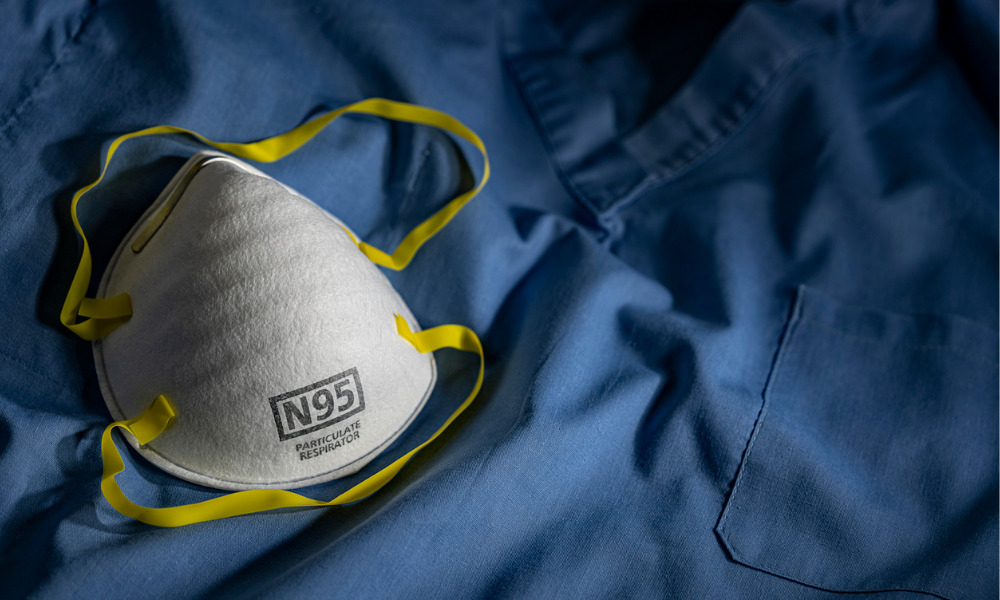
Directives neither unreasonable nor violated s. 7 of the Charter, court said

The Ontario Divisional Court has upheld the reasonableness of two directives a healthcare-worker union said disregarded the risk of aerosol and asymptomatic transmission of COVID-19 in health care facilities.
In Ontario Nurses’ Assn. v. Chief Medical Officer of Health (Ontario), 2021 ONSC 5999, the applicants, a union representing health care workers and its officers, sought an order requiring the respondent, Ontario chief medical officer of health, to amend the two directives issued under the Health Protection and Promotion Act, R.S.O. 1990, c. H.7.
The applicants alleged that the directives were unreasonable by failing to reflect the risk of aerosol and asymptomatic transmission of COVID-19 and require the use of N95 masks in health care facilities. They further alleged that the respondent’s failure to do so constituted noncompliance with the precautionary principle under the Health Protection and Promotion Act and denied or discouraged health care workers from using N95 masks, thereby breaching their rights to life and security under s. 7 of the Charter.
In its decision, the Divisional Court held that the applicants had failed to prove that the directives were unreasonable and breached s.7.
To determine the reasonableness of both directives, the court merely examined one of the two directives, Directive #5, given its precedence and the applicants’ focus on hospitals and long-term care homes.
After examination, the court noticed some significant changes made to the earlier versions of Directive #5. In its latest version, Directive #5 has expanded its scope not only to regulated health professionals but also to non-regulated health professionals, such as personal support workers. Directive #5 initially prohibited “unreasonable” denial of an N95 mask by an employer, but the latest version has prohibited denial on any basis. The latest version has also provided that in deciding whether an N95 mask is required, a nurse may consider his or her proximity to the patient or resident and the mere fact of their interaction with one another.
The directives themselves, the court noted, made it clear that the respondent considered both the precautionary principle and the scientific evidence about how COVID-19 is transmitted.
The court explained that while the directives were based on the scientific view that the virus is not normally transmitted by aerosols, the respondent implemented the precautionary principle by allowing nurses to be provided with N95 masks in any setting where they believe, based on their professional judgment, one is required.
Any difficulties experienced by nurses in accessing N95 masks would be matters of labour law and should be addressed through remedies available in that context, the court said.